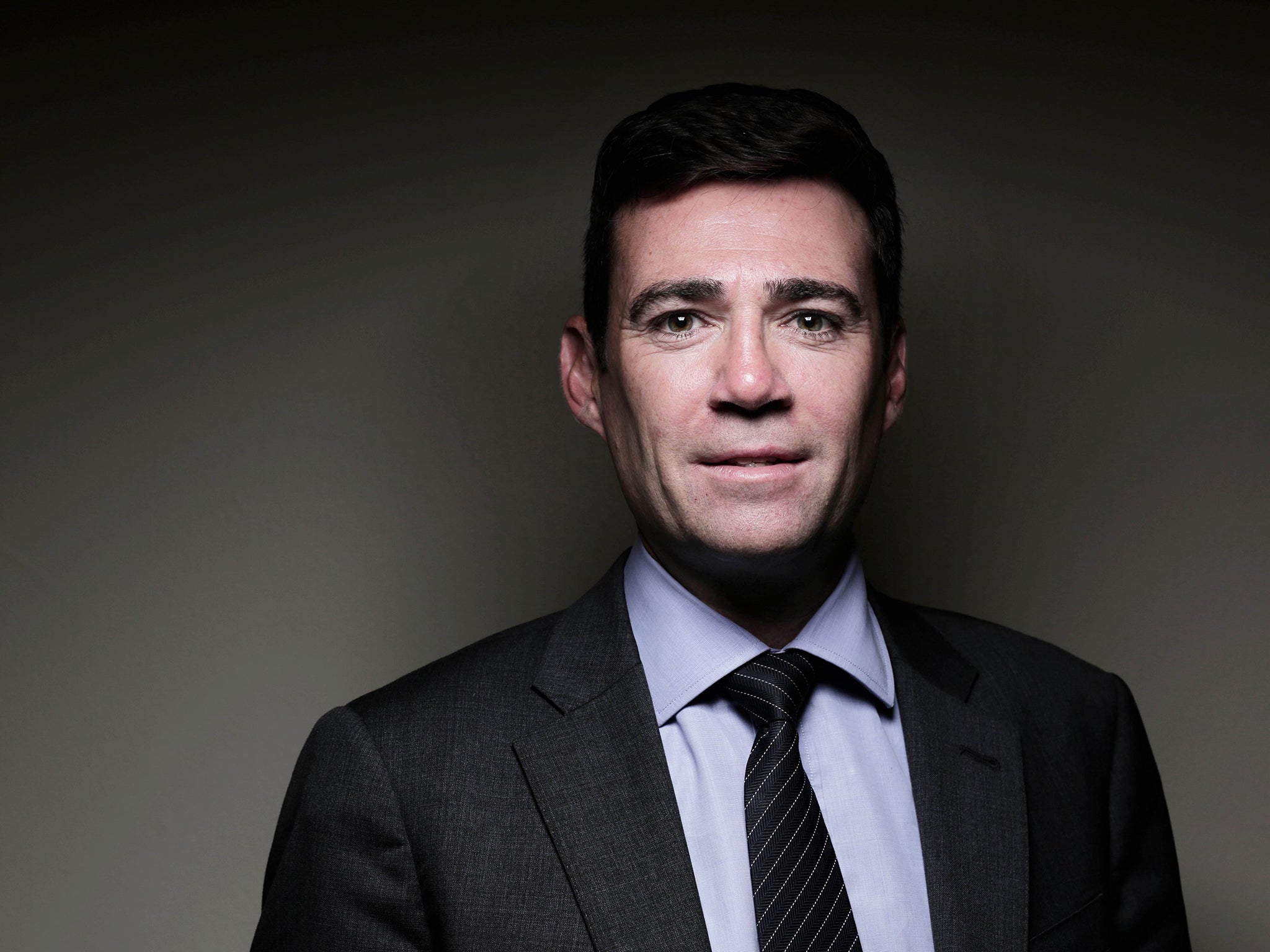Andy Burnham: 'Labour will do whatever it takes for a free health service'
The shadow Health Secretary outlines his vision for a new national care and health service

When the 91-year-old war veteran Harry Leslie Smith spoke at Labour’s conference, reminding delegates of the “barbarous, bleak uncivilised time” before the creation of NHS, he left hardly a dry eye in the house.
For one man in the room the speech had a special resonance. “It was emotional… You felt like he’d waited his whole life to make that speech,” Andy Burnham reflects. “‘Don’t let my history be your future’: it was humbling.”
As Labour’s shadow Health Secretary, Mr Burnham has the responsibility of carrying Labour’s most sacred torch. The party which set up the NHS has benefited over the decades from the continued success of, and public affection for, the 66-year-old institution. Today, with an uncomfortably narrow poll lead over the Conservatives and in a week of warnings about the health service’s future, Labour has recognised that it had better play to its strengths.
“The choice is becoming clear on the NHS now,” Mr Burnham told The Independent, in response to a week-long investigation into the state of the health service. “And the choice is pretty stark.”
In numbers: the NHS crisis
Show all 7Labour’s expectation is that David Cameron’s promise to “protect” the NHS budget will amount to the same kind of protection it has received over the last four years: an era of austerity in which the budget has not been cut, but has increased so slowly as to fall behind ever-growing demand.
“This is the crux of it. A protected NHS budget in the way that they are offering is not enough to stop an NHS crisis in the next parliament,” Mr Burnham said.
“A protected budget with their current ideology is toxic for the NHS. A protected budget – a flat budget – plus their mandating of competition and tendering will be a toxic combination for the NHS. It will subsume the NHS in the next parliament.”
That, Mr Burnham, says would be a tragedy.
His “mission”, he says, is to create an ever-greater NHS, one that will eventually include universal, free provision of care to the elderly.
“What does 66 years of NHS history tell us? It tells us that a universal system that looks after everybody, where everybody contributes, is in the end the cheapest way to look after everybody.
“So, what do you do in the century of the ageing society? Do you whittle it away or do you built it out? You carry on building it out.”
Mr Burnham is not the only one proposing universal free care of the elderly – a national health and care service, as he terms it.
It would be expensive and “in the current climate” he admits he cannot commit to “any kind of mechanism to achieve it”.
“But I’m on a bit of a mission with this, I feel it passionately, and that’s where we need to get to eventually… The idea that anybody should be wiped out financially as a result of their vulnerability is anathema to me and I think would be to the Labour Party that created the NHS.”
However, the NHS spending pledges that Labour has been able to make – £2.5bn in additional funding per year – have already been criticised for not going far enough. One of the party’s most influential MPs, Frank Field, told The Independent this week that they “did not stack up”.
The door might be open to more money in the future, Mr Burnham indicated.
“The words I would point to would be in Ed Balls’s speech at the Labour Party conference: ‘We will do whatever it takes’,” he said. “That sums up the feeling of Labour people. We’ve made a commitment – a big commitment from opposition – but what he’s voicing is that a commitment to a free-at-the-point of use health service is absolute.”
However, the NHS’s problems go beyond just money, he says. “The answer to the financial challenge in the end is to do things very differently. Our money is very much geared to that end – putting the NHS on the path towards clinical and financial sustainability.”
That will mean, he says, transforming both the NHS workforce and the way money moves around the system to incentivise care in the home.
Part of Labour’s NHS pledge includes the creation of 20,000 more nursing posts, 5,000 more care workers, 3,000 more midwives and 8,000 more GPs.
The “majority” of the new GPs should be salaried, he said, working out of hospitals as part of “integrated care organisations”, rather than independent contractors working from individual practices – as most GPs currently do.
“This is a different route for those GPs, particularly young GPs who want to begin their career working in a different way,” he said. “The policies we have got are the first significant strides towards a national health and care service,” he said. “The Labour Party is reaffirming its commitment to the NHS we created. ‘Whatever it takes’ are good words from my point of view, because I think that’s how we all feel.”
Subscribe to Independent Premium to bookmark this article
Want to bookmark your favourite articles and stories to read or reference later? Start your Independent Premium subscription today.

Join our commenting forum
Join thought-provoking conversations, follow other Independent readers and see their replies